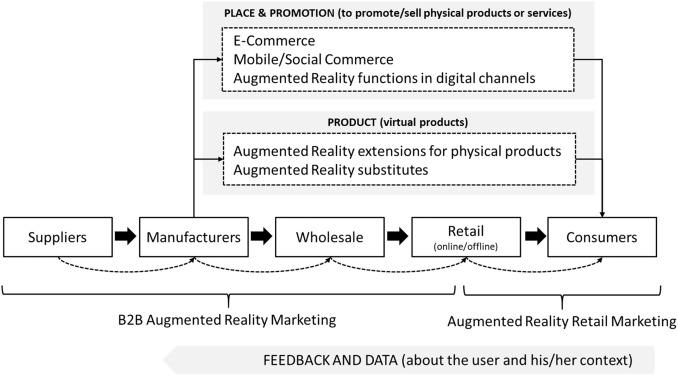Student Perspectives on Online Learning: Honest Experiences,Challenges,and Insights
In the last few years,online learning has revolutionized how students access education. Amidst global events and technological evolution, the digital classroom has become not just a necessity, but a viable alternative to traditional schooling. But what do students really think about this shift? This article explores student perspectives on online learning, delving into their authentic experiences, challenges faced, and valuable insights for future learners and educators.
Why Student Perspectives Matter in Online Learning
As educational institutions shift towards hybrid and fully virtual classrooms, understanding the student experience in online education becomes crucial. Students are the central stakeholders, and their honest feedback helps improve the quality, engagement, and accessibility of online courses.
- Insights from students help educators identify and bridge learning gaps
- Honest experiences guide institutions to improve digital platforms
- Student feedback encourages the adoption of best practices in remote teaching
Honest Experiences: What Students Are Saying About Online Learning
Online learning evokes a broad spectrum of experiences, and these perspectives are as diverse as the learners themselves. Here are some frequently shared thoughts from students worldwide:
Positive Experiences
- Adaptability: Students often praise the freedom to learn at their own pace and schedule.
- Accessibility: Digital classrooms make education possible from virtually anywhere,removing geographical barriers.
- Variety of Resources: From recorded lectures to interactive quizzes, online platforms frequently enough provide a wealth of resources.
- Skill Development: Students report improved digital literacy, time management, and self-discipline due to online learning environments.
Negative Experiences
- Feeling Disconnected: Lack of face-to-face interaction can lead to feelings of isolation and decreased motivation.
- Technical Difficulties: Unstable internet connections and unfamiliarity with software can hinder learning.
- Distractions at Home: many students struggle to focus due to the informal home surroundings.
- Assessment Concerns: Some students worry about the fairness and accuracy of online tests and assignments.
Top Challenges Faced by Students in Online Learning
No educational model is without its hurdles. Here are some major challenges in online learning as shared by students:
- Lack of Motivation and Accountability: The absence of in-person supervision often leads to procrastination.
- Difficulty Communicating with Instructors: Immediate feedback is harder to obtain, which can cause confusion and delays.
- Limited Collaboration: Group projects and discussions may lack the dynamic energy of in-person interactions.
- Technical Barriers: Not all students have access to reliable devices or high-speed internet, widening the digital divide.
- Time Management Issues: Balancing classwork, home responsibilities, and personal life becomes more challenging.
Firsthand Student Case Studies
To truly appreciate the diversity of student perspectives on online learning, let’s look at some real-life experiences from students around the globe.
Case Study 1: Sarah, University Student (UK)
“Online learning gave me the flexibility to caregive for my family while pursuing my degree. However, I often missed the campus experience—meeting friends, attending events, and face-to-face mentorship.”
Case Study 2: Jamal, High School senior (USA)
“I struggled to stay focused during Zoom classes. My grades dropped until I set up a dedicated study area and a daily routine. Connecting with classmates in forums helped me feel less isolated.”
Case Study 3: Priya,Engineering Student (india)
“Access to recorded lectures meant I could revisit difficult topics,which improved my understanding. But in practical subjects, I missed the hands-on labs.”
Benefits of Online Learning: Student Insights
Despite the challenges, students highlight unique advantages through their online learning journeys. Here are some key benefits they report:
- Greater Course Variety: students can explore subjects outside their physical institutions due to the global reach of online platforms.
- Self-Paced Learning: The ability to learn at one’s own speed supports diverse learning styles and paces.
- Work-Study balance: Online courses allow for part-time jobs, internships, and volunteering alongside academic commitments.
- improved Digital Skills: Students become proficient in communication tools, collaboration platforms, and remote etiquette—crucial for modern workplaces.
Practical Tips for Success in Online Learning
For those navigating online education, these actionable strategies, based on student recommendations, can help ensure both academic achievement and personal well-being:
- Set a Consistent Routine: Establish regular study hours to build discipline and avoid procrastination.
- Create a Dedicated Workspace: Eliminate distractions and designate a space just for learning and coursework.
- Stay Connected: Engage in discussion boards, study groups, and virtual meetups to foster a sense of community.
- Leverage Technology: Use apps and tools for note-taking, project management, and time tracking.
- Seek Support: Don’t hesitate to reach out to instructors or counselors if you’re facing challenges—help is available!
How Educators Can Improve Student Online Learning experience
addressing student concerns enhances both learning outcomes and satisfaction. Here are proven strategies for educators:
- Offer multiple Communication Channels: Provide timely support through email, chat, and virtual office hours.
- Design Interactive Lessons: incorporate quizzes, polls, and group activities to maintain engagement.
- Provide Clear Instructions: transparent guidelines for assignments and assessments reduce confusion.
- Solicit Regular Feedback: Adjust teaching methods based on ongoing student feedback.
- Promote Mental Health: Encourage breaks and mindfulness practices to combat Zoom fatigue.
Conclusion: Embracing the Future of Online Learning Together
The online learning experience is a journey of adaptation, resilience, and innovation—for both students and educators. Student perspectives highlight both the tremendous potential and the ongoing challenges that come with digital education. By listening to students, implementing practical solutions, and nurturing community spirit, we can ensure online learning not only survives but thrives as a mainstream approach to education.
Are you a student with your own online learning story? Or an educator seeking advice? Share your experiences and tips in the comments below—together, we can shape the future of digital education!

